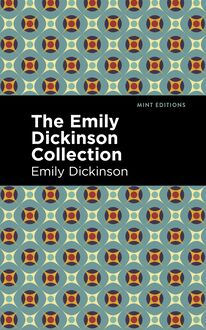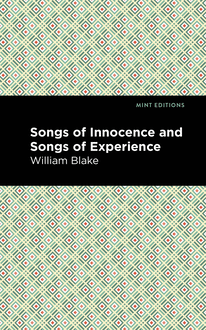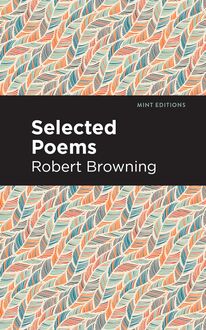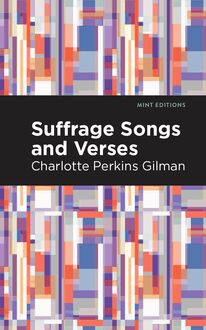-
 Univers
Univers
-
 Ebooks
Ebooks
-
 Livres audio
Livres audio
-
 Presse
Presse
-
 Podcasts
Podcasts
-
 BD
BD
-
 Documents
Documents
-
- Cours
- Révisions
- Ressources pédagogiques
- Sciences de l’éducation
- Manuels scolaires
- Langues
- Travaux de classe
- Annales de BEP
- Etudes supérieures
- Maternelle et primaire
- Fiches de lecture
- Orientation scolaire
- Méthodologie
- Corrigés de devoir
- Annales d’examens et concours
- Annales du bac
- Annales du brevet
- Rapports de stage
La lecture à portée de main
Vous pourrez modifier la taille du texte de cet ouvrage
Découvre YouScribe en t'inscrivant gratuitement
Je m'inscrisDécouvre YouScribe en t'inscrivant gratuitement
Je m'inscrisEn savoir plus
Vous pourrez modifier la taille du texte de cet ouvrage
En savoir plus

Description
Selected Poems (1923) is a collection of poems by American poet Robert Frost. Dedicated to Edward Thomas, a friend of Frost’s and an important English poet who died toward the end of the First World War, Selected Poems is a wonderful sampling of poems from Frost’s early collections, including A Boy’s Will and North of Boston. Known for his plainspoken language and dedication to the images and rhythms of rural New England, Robert Frost is one of America’s most iconic poets, a voice to whom generations of readers have turned in search of beauty, music, and life.
“Mowing” envisions the poet’s work through the prism of rural labor. “There was never a sound beside the wood but one / And that was my long scythe whispering to the ground. / What was it it whispered?” The speaker does not know, but continues his task, hypnotized by its rhythm and simple music. In “After Apple-Picking,” as fall gives over to winter, the poet remembers in dreams how the “Magnified apples appear and disappear, / Stem end and blossom end” as he climbs the ladder into the heart of the tree. Both a symbol for life and a metaphor for the poetic act, apple picking leaves the poet “overtired / Of the great harvest [he himself] desired”, awaiting sleep as he describes “its coming on,” wondering what, if anything, it will bring. “The Road Not Taken,” perhaps Frost’s most famous poem, is a meditation on fate and free will that follows a traveler in an autumn landscape, unsure of which path to take, but certain he cannot stand still.
With a beautifully designed cover and professionally typeset manuscript, this edition of Robert Frost’s Selected Poems is a classic of American literature reimagined for modern readers.
Sujets
Informations
| Publié par | Mint Editions |
| Date de parution | 01 décembre 2020 |
| Nombre de lectures | 0 |
| EAN13 | 9781513274553 |
| Langue | English |
| Poids de l'ouvrage | 3 Mo |
Informations légales : prix de location à la page 0,0500€. Cette information est donnée uniquement à titre indicatif conformément à la législation en vigueur.
Extrait
Selected Poems
Robert Browning
Selected Poems was first published in 1917.
This edition published by Mint Editions 2020.
ISBN 9781513269559 | E-ISBN 9781513274553
Published by Mint Editions ®
minteditionbooks .com
Publishing Director: Jennifer Newens
Design & Production: Rachel Lopez Metzger
Typesetting: Westchester Publishing Services
C ONTENTS T HE P IED P IPER OF H AMELIN T RAY I NCIDENT OF THE F RENCH C AMP “H OW THEY BROUGHT THE G OOD N EWS FROM G HENT TO A IX ” H ERVÉ R IEL P HEIDIPPIDES M Y S TAR E VELYN H OPE L OVE AMONG THE R UINS M ISCONCEPTIONS N ATURAL M AGIC A PPARITIONS A W ALL C ONFESSIONS A W OMAN ’ S L AST W ORD A P RETTY W OMAN Y OUTH AND A RT A T ALE C AVALIER T UNES H OME -T HOUGHTS , FROM THE S EA S UMMUM B ONUM A F ACE S ONGS FROM P IPPA P ASSES T HE L OST L EADER A PPARENT F AILURE F EARS AND S CRUPLES I NSTANS T YRANNUS T HE P ATRIOT T HE B OY AND THE A NGEL M EMORABILIA W HY I AM A L IBERAL P ROSPICE E PILOGUE TO “A SOLANDO ” “D E G USTIBUS —” T HE I TALIAN IN E NGLAND M Y L AST D UCHESS T HE B ISHOP O RDERS HIS T OMB AT S AINT P RAXED ’ S C HURCH T HE L ABORATORY H OME T HOUGHTS , FROM A BROAD U P AT A V ILLA —D OWN IN THE C ITY A T OCCATA OF G ALUPPI ’ S A BT V OGLER R ABBI B EN E ZRA A G RAMMARIAN ’ S F UNERAL A NDREA DEL S ARTO C ALIBAN UPON S ETEBOS ; O R , N ATURAL T HEOLOGY IN THE I SLAND “C HILDE R OLAND TO THE D ARK T OWER C AME ” A N E PISTLE S AUL O NE W ORD M ORE
T HE P IED P IPER OF H AMELIN
A C HILD ’ S S TORY
(Written for, and inscribed to W. M. the Younger)
I
Hamelin town’s in Brunswick,
By famous Hanover city;
The river Weser, deep and wide,
Washes its walls on either side;
A pleasanter spot you never spied;
But, when begins my ditty,
Almost five hundred years ago,
To see the townsfolk suffer so
From vermin, was a pity.
II
Rats!
They fought the dogs and killed the cats,
And bit the babies in the cradles,
And ate the cheeses out of the vats,
And licked the soup from the cooks’ own ladles,
Split open the kegs of salted sprats.
Made nests inside men’s Sunday hats.
And even spoiled the women’s chats
By drowning their speaking
With shrieking and squeaking
In fifty different sharps and flats.
III
At last the people in a body
To the Town Hall came flocking:
“’Tis clear,” cried they, “our Mayor’s a noddy;
And as for our Corporation, shocking
To think we buy gowns lined with ermine
For dolts that can’t or won’t determine
What’s best to rid us of our vermin!
You hope, because you’re old and obese,
To find in the furry civic robe ease!
Rouse up, sirs! give your brains a racking
To find the remedy we’re lacking,
Or, sure as fate, we’ll send you packing!”
At this the Mayor and Corporation
Quaked with a mighty consternation.
IV
An hour they sat in council;
At length the Mayor broke silence:
“For a guilder I’d my ermine gown sell,
I wish I were a mile hence!
It’s easy to bid one rack one’s brain—
I’m sure my poor head aches again,
I’ve scratched it so, and all in vain.
Oh for a trap, a trap, a trap!”
Just as he said this, what should hap
At the chamber door but a gentle tap?
“Bless us,” cried the Mayor, “what’s that?”
(With the Corporation as he sat,
Looking little, though wondrous fat;
Nor brighter was his eye, nor moister
Than a too-long-opened oyster,
Save when at noon his paunch grew mutinous
For a plate of turtle, green and glutinous)
“Only a scraping of shoes on the mat?
Anything like the sound of a rat
Makes my heart go pit-a-pat!”
V
“Come in!”—the Mayor cried, looking bigger:
And in did come the strangest figure!
His queer long coat from heel to head
Was half of yellow and half of red,
And he himself was tall and thin,
With sharp blue eyes, each like a pin,
With light loose hair, yet swarthy skin,
No tuft on cheek, nor beard on chin,
But lips where smiles went out and in;
There was no guessing his kith and kin:
And nobody could enough admire
The tall man and his quaint attire.
Quoth one: “It’s as my great grandsire,
Starting up at the Trump of Doom’s tone,
Had walked his way from his painted tombstone!”
VI
He advanced to the council-table:
And, “Please your honors,” said he, “I’m able,
By means of a secret charm, to draw
All creatures living beneath the sun,
That creep or swim or fly or run,
After me so as you never saw!
And I chiefly use my charm
On creatures that do people harm,
The mole and toad and newt and viper;
And people call me the Pied Piper.”
(And here they noticed round his neck
A scarf of red and yellow stripe,
To match with his coat of self-same cheque:
And at the scarf’s end hung a pipe;
And his fingers, they noticed, were ever straying,
As if impatient to be playing
Upon this pipe, as low it dangled
Over his vesture so old-fangled.)
“Yet,” said he, “poor piper as I am,
In Tartary I freed the Cham,
Last June, from his huge swarms of gnats;
I eased in Asia the Nizam
Of a monstrous brood of vampire-bats:
And as for what your brain bewilders,
If I can rid your town of rats
Will you give me a thousand guilders?”
“One? fifty thousand!”—was the exclamation
Of the astonished Mayor and Corporation.
VII
Into the street the Piper stept,
Smiling first a little smile,
As if he knew what magic slept
In his quiet pipe the while:
Then, like a musical adept,
To blow the pipe his lips he wrinkled,
And green and blue his sharp eyes twinkled,
Like a candle-flame where salt is sprinkled;
And ere three shrill notes the pipe uttered,
You heard as if an army muttered:
And the muttering grew to a grumbling;
And the grumbling grew to a mighty rumbling;
And out of the houses the rats came tumbling.
Great rats, small rats, lean rats, brawny rats,
Brown rats, black rats, gray rats, tawny rats,
Grave old plodders, gay young friskers,
Fathers, mothers, uncles, cousins,
Cocking tails and pricking whiskers,
Families by tens and dozens,
Brothers, sisters, husbands, wives—
Followed the Piper for their lives.
From street to street he piped advancing,
And step for step they followed dancing,
Until they came to the river Weser,
Wherein all plunged and perished!
—Save one, who, stout as Julius C æ sar,
Swam across and lived to carry
(As he, the manuscript he cherished)
To Rat-land home his commentary:
Which was: “At the first shrill notes of the pipe,
I heard a sound as of scraping tripe,
And putting apples, wondrous ripe,
Into a cider press’s gripe;
And a moving away of pickle-tub-boards,
And a leaving ajar of conserve-cupboards,
And a drawing the corks of train-oil-flasks,
And a breaking the hoops of butter-casks:
And it seemed as if a voice
(Sweeter far than by harp or by psaltery
Is breathed) called out, ‘Oh, rats, rejoice!
The world is grown to one vast drysaltery!
So munch on, crunch on, take your nuncheon,
Breakfast, supper, dinner, luncheon!’
And just as a bulky sugar-puncheon,
Already staved, like a great sun shone
Glorious scarce an inch before me,
Just as methought it said, ‘Come, bore me!’
—I found the Weser rolling o’er me.”
VIII
You should have heard the Hamelin people
Ringing the bells till they rocked the steeple.
“Go,” cried the Mayor, “and get long poles,
Poke out the nests and block up the holes!
Consult with carpenters and builders,
And leave in our town, not even a trace
Of the rats!”—when suddenly, up the face
Of the Piper perked in the market-place,
With a, “First, if you please, my thousand guilders!”
IX
A thousand guilders! The Mayor looked blue;
So did the Corporation, too.
For council dinners made rare havoc
With Claret, Moselle, Vin-de-Grave, Hock;
And half the money would replenish
Their cellar’s biggest butt with Rhenish.
To pay this sum to a wandering fellow
With a gypsy coat of red and yellow!
“Beside,” quoth the Mayor, with a knowing wink,
“Our business was done at the river’s brink;
We saw with our eyes the vermin sink,
And what’s dead can’t come to life, I think.
So, friend, we’re not the folks to shrink
From the duty of giving you something for drink,
And a matter of money to put in your poke;
But as for the guilders, what we spoke
Of them, as you very well know, was in joke.
Beside, our losses have made us thrifty.
A thousand guilders! Come, take fifty!”
X
The Piper’s face fell, and he cried,
“No trifling! I can’t wait! Beside,
I’ve promised to visit by dinner-time
Bagdat, and accept the prime
Of the Head-Cook’s pottage, all he’s rich in,
For having left, in the Caliph’s kitchen,
Of a nest of scorpions no survivor:
With him I proved no bargain-driver,
With you, don’t think I’ll bate a stiver!
And folks who put me in a passion
May find me pipe after another fashion.”
XI
“How?” cried the Mayor, “d’ye think I brook
Being worse treated than a cook?
Insulted by a lazy ribald
With idle pipe and vesture piebald?
You threaten us, fellow? Do your worst!
Blow your pipe there till you burst!”
XII
Once more he stept into the street,
And to his lips again
Laid his long pipe of smooth straight cane;
And ere he blew three notes (such sweet,
Soft notes as yet musician’s cunning
Never gave the enraptured air)
There was a rustling that seemed like a bustling
Of merry crowds justling at pitching and hustling;
Small feet were pattering, wooden shoes clattering,
Little hands clapping, and little tongues chattering,
And, like fowls in a farm-yard, when barley is scattering,
Out came the children running.
All the little boys and girls.
With rosy cheeks and flaxen curls,
And sparkling eyes and teeth like pearls,
Tripping and skipping, ran merrily after
The wonderful music with shouting and laughter.
XIII
The Mayor was dumb, and the Council stood
As if they were changed into blocks of wood.
Unable to move a step, or cry
To the children merrily skipping by,
—Could only follow with the eye
That joyous crowd at the piper’s back.
But how the Mayor was on the rack,
And the wretched Council’s bosom beat,
As the Piper turned from
-
 Univers
Univers
-
 Ebooks
Ebooks
-
 Livres audio
Livres audio
-
 Presse
Presse
-
 Podcasts
Podcasts
-
 BD
BD
-
 Documents
Documents
-
Jeunesse
-
Littérature
-
Ressources professionnelles
-
Santé et bien-être
-
Savoirs
-
Education
-
Loisirs et hobbies
-
Art, musique et cinéma
-
Actualité et débat de société
-
Jeunesse
-
Littérature
-
Ressources professionnelles
-
Santé et bien-être
-
Savoirs
-
Education
-
Loisirs et hobbies
-
Art, musique et cinéma
-
Actualité et débat de société
-
Actualités
-
Lifestyle
-
Presse jeunesse
-
Presse professionnelle
-
Pratique
-
Presse sportive
-
Presse internationale
-
Culture & Médias
-
Action et Aventures
-
Science-fiction et Fantasy
-
Société
-
Jeunesse
-
Littérature
-
Ressources professionnelles
-
Santé et bien-être
-
Savoirs
-
Education
-
Loisirs et hobbies
-
Art, musique et cinéma
-
Actualité et débat de société
- Cours
- Révisions
- Ressources pédagogiques
- Sciences de l’éducation
- Manuels scolaires
- Langues
- Travaux de classe
- Annales de BEP
- Etudes supérieures
- Maternelle et primaire
- Fiches de lecture
- Orientation scolaire
- Méthodologie
- Corrigés de devoir
- Annales d’examens et concours
- Annales du bac
- Annales du brevet
- Rapports de stage




















